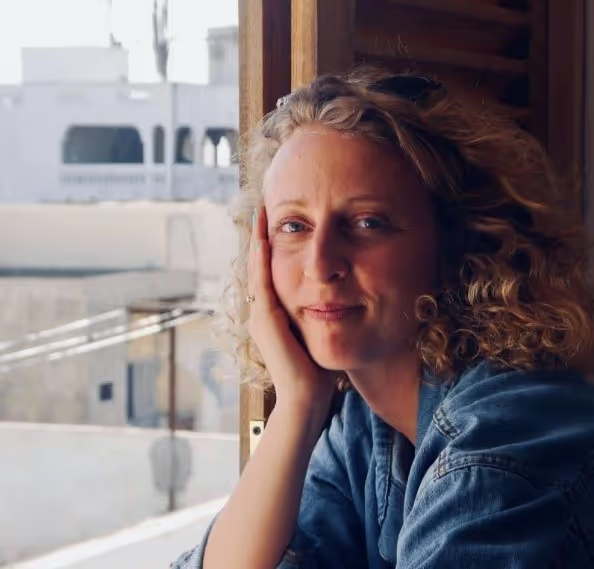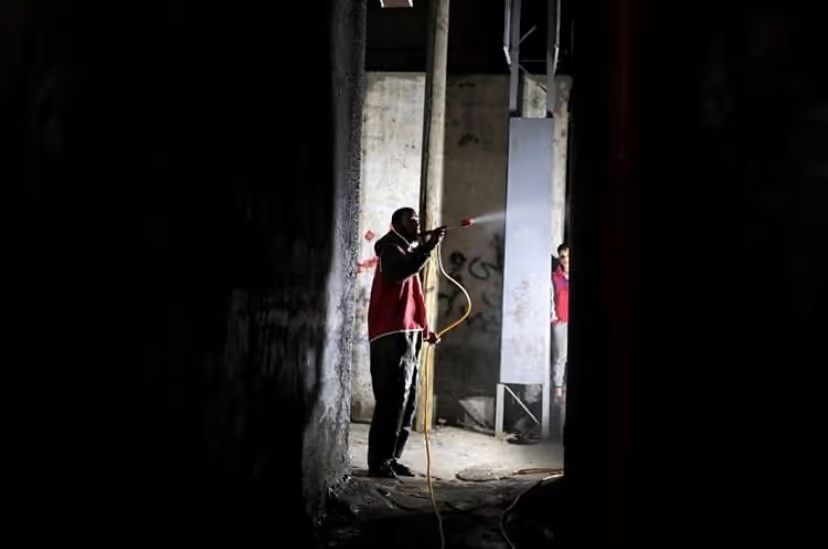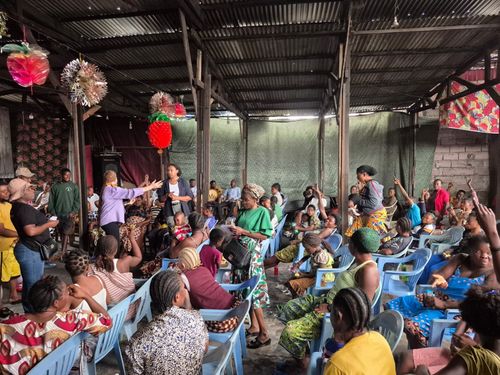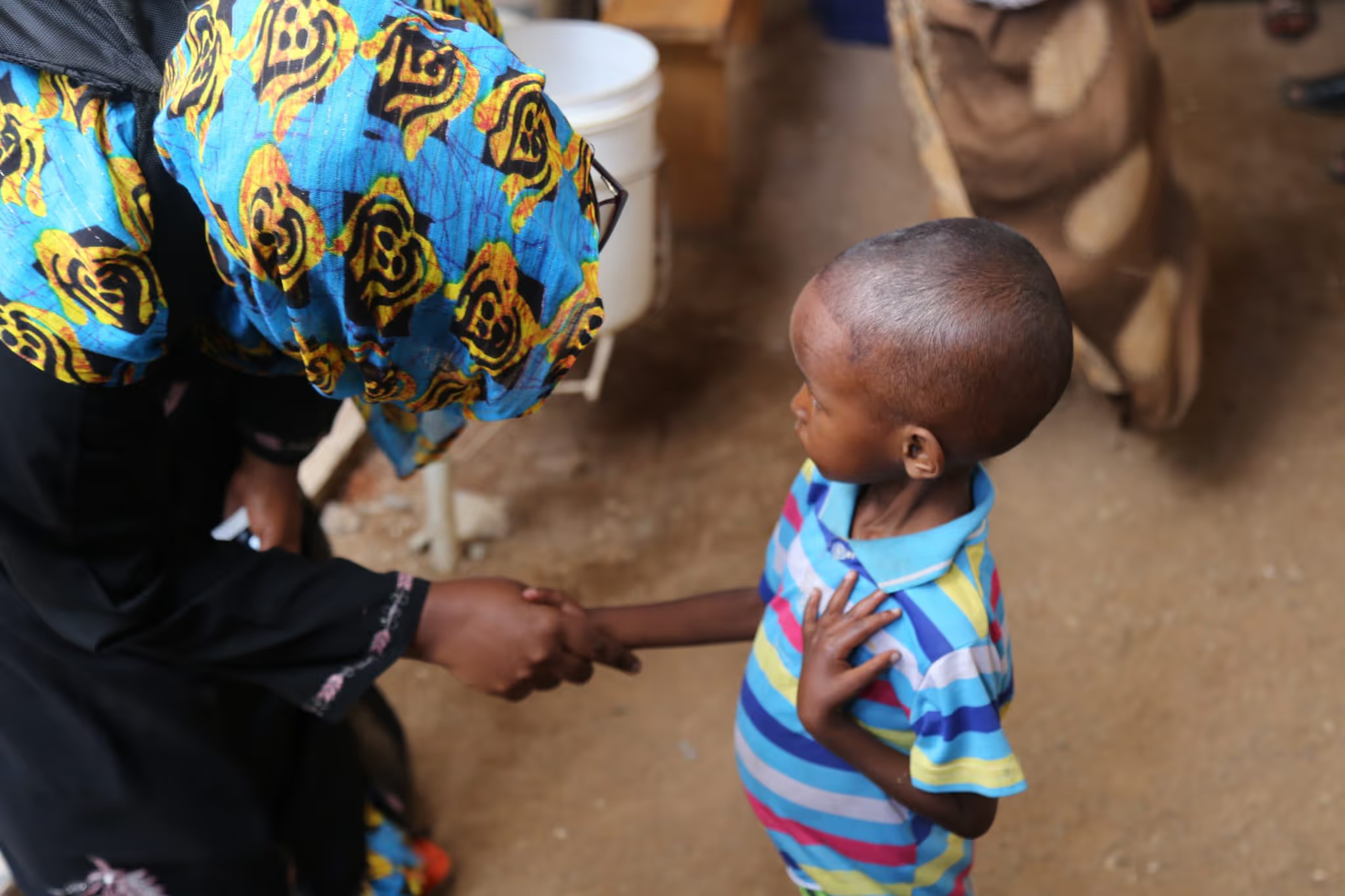COVID-19 in Gaza: community practices in refugee camps
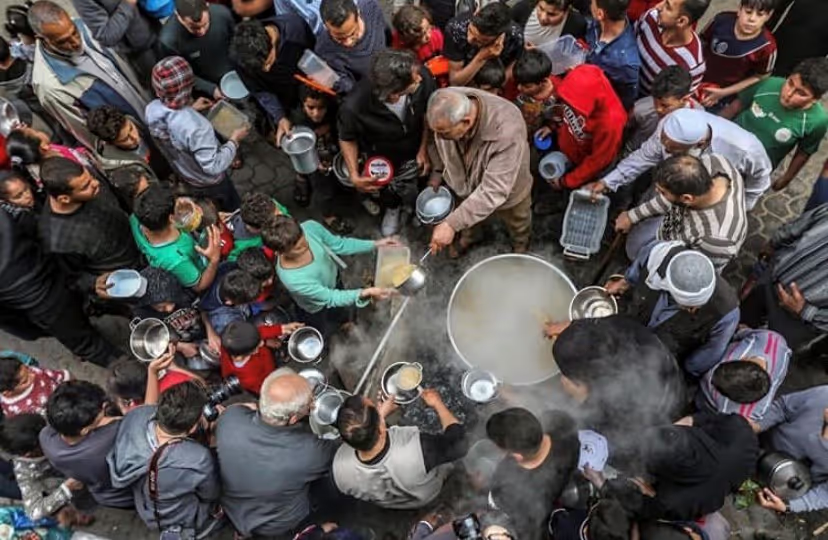
Project overview
This study in refugee camps in Gaza, explored how communities responded to the COVID-19 pandemic and the impacts of public health measures designed to mitigate infection spread. The study also examined access to health services and protection concerns.
Countries
Palestine
Organisations
University of Bath
Partners
IOD Parc, European University Institute
Area of funding
Humanitarian Research
Grant amount
£61,914.00
Start date
01
May
2020
End date
01
January
2021
Project length (in months)
8
Funding calls
Focus areas
No items found.
Topics
COVID-19
Refugees and IDPS
Status
Closed
Project solution
This project offers [specific solution or intervention] to tackle [challenge]. By implementing [strategies, tools, or innovations], the project aims to achieve [desired outcomes]. The approach is designed to [specific actions or methods] to bring about meaningful change in [community, region, or issue area].
Expected outcomes
This project aims to achieve [specific outcomes], such as [measurable results, improvements, or changes]. The expected impact includes [benefits to the target community, advancements in research or innovation, or long-term effects]. By the end of the project, we anticipate [specific changes or milestones] that will contribute to [broader goals or objectives].
Principal Investigator: Dr Jason Hart (University of Bath)
Research Snapshot: COVID-19 in Gaza
This Research Snapshot summarises findings from a study in refugee camps in Gaza, exploring how communities responded to the COVID-19 pandemic and the impacts of public health measures designed to mitigate infection spread. The study also examined access to health services and protection concerns.
[.cta_link]View Snapshot[.cta_link]
What did the study set out to achieve?
This research sought to address the lack of evidence surrounding how refugee camp communities responded to public health directives established in response to COVID-19 in Gaza. The project explored the consequences of a ‘stay at home’ policy, among others, in this context of densely overcrowded communities that are under threat of conflict-related violence, where water is scarce, and where access to protective equipment such as masks very limited. To the best of the research team's knowledge, this was the first study of the social and behavioural aspects of COVID-19 in refugee camps in the Middle East.
The project was conceptualised with the United Nations Relief and Works Agency for Palestine Refugees in the Near East (UNRWA), as the main health, education and sanitation service provider in the camps.
What were the key findings?
- Sources of information about the pandemic
- Participants have good knowledge of the virus, its symptoms, modes of transmission and preventative measures.
- They prefer to use social media to follow developments related to the pandemic in Gaza
- Accessing health care
- Fear of becoming infected with COVID-19 has negatively affected people’s access to healthcare.
- Implications of the official response
- Widespread concern exists about livelihoods and living costs due to COVID-19 measures. For this reason, many people felt unable to observe lockdown and distancing measures.
- An increase in both depression and sexual and gender-based violence was reported.
- Reactions to public health measures
- A majority of respondents called for stricter measures to fight the pandemic, while also justifying the need for people in Gaza to break the existing regulations in order to cope with economic insecurity.
- Many participants found public health measures confusing and sometimes contradictory.
What does this mean for policymakers and practitioners?
The research findings led the team to make the following recommendations:
- End the blockade and work to ensure that all duty bearers meet their obligations under international law.
- Support immediate healthcare and humanitarian response and long-term sustainable development in Gaza.
- Increase the dissemination of information on service provision related to sexual &; gender-based violence.
- Understand COVID-19 vulnerability in relation to socio-economic status.
- Increase use of social media in communicating public health measures and available avenues of support for communities.
- Engage with community-based networks.
- Support the monitoring of human rights violations during the pandemic.
Next Steps
The findings of this research are directly informing the evolving COVID-19 response in Palestinian refugee camps. The following outputs will be produced to support this:
- A findings report to be shared with relevant agencies working in Gaza
- Communication flyers/posters in Arabic with key public health and protection messaging
- A series of public health messages to be disseminated via sms beneficiary lists
- An indicator tool for monitoring select Protection issues
- At least one peer-review journal article co-authored by the core research team
No items found.
Project delivery & updates
Stay up to date with the latest developments from this project. Here, you will find details on what has been delivered, resources created, and regular updates as the project progresses. Access key documents, reports, and other materials to see how the project is making an impact.
No resources/updates have been published yet for this project. Sign up for our newsletter to stay informed about upcoming publications and updates!
Join our Newsletter
Resources
No items found.
Latest updates
No items found.
